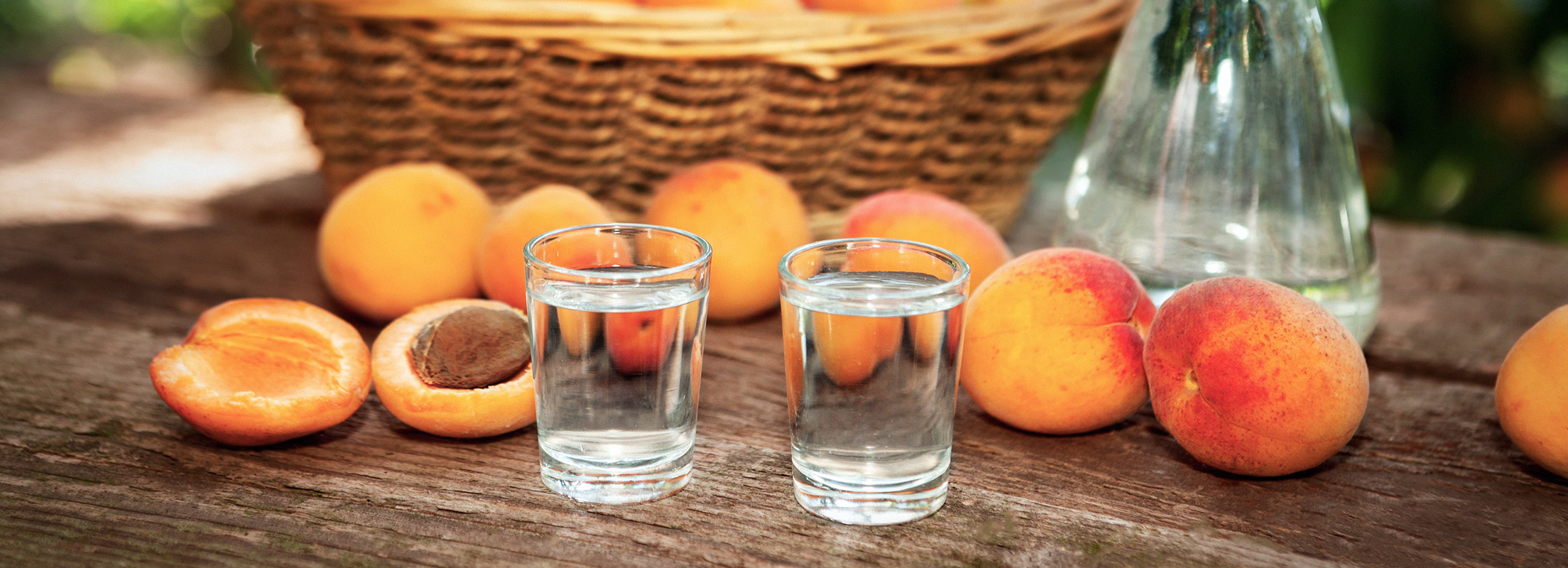

Rakija is the most treasured of all spirits in Serbia. This sharp-flavoured drink is indispensable on almost every dining table in the country. It goes perfectly with both traditional and modern dishes, and nothing will warm you up in the winter quite as well as a cup of some good “Šumadija Tea” – rakija boiled with water and caramelised sugar.
As an inherent part of any festive occasion, rakija is also a beverage with which hosts welcome their guests and send them on their way.|It is made by distilling different fruits. In Serbia, you can taste rakija made of many delicious fruits including quince, apricot, raspberry, grape and apple. You can enjoy both milder and stronger rakijas – a popular choice is kajsijevača (apricot rakija) which has a high sugar content. The rakija-making ritual is a treasured moment of joy shared by the whole family, with neighbours invited to take part as well.
The best-known variety is šljivovica (plum rakija), which is made by virtually every rural household in Serbia. The country is one of the world’s largest plum producers and as much as 70% of the yield goes into distilling šljivovica. The drink is made from fermented plum pomace or juice according to time-honoured recipes.
Rakija distilled once called soft rakija has a low alcoholic content and is used for making “Šumadija Tea”. When distilled twice, rakija is known as “prepečenica” and typically has an alcoholic content of 40% to 45% - though it can go up to 70%. Rakija becomes better with age so rakija distilled decades ago is highly prized.
On Zlatibor Mountain lies the village of Šljivovica, so named after the famous Serbian drink. Rakija distilled according to this village’s recipe has received certification, from the European Commission, as the first Serbian brand with protected designation of origin.
Plum rakija with added juniper berries, “klekovača”, is typical of Western Serbia, while people in the region around the town of Požega distil šljivovica from an autochthonous plum variety called požegača - also with protected designation of origin.
Traditionally, rakija is served in special crockery: thus, the national drink is drunk from “litrić” (one-litre bottle), “čokanjčić” (shot glass) and “čutura” (canteen), while soft rakija is drunk from “rukatka”, a shot glass with a handle.
